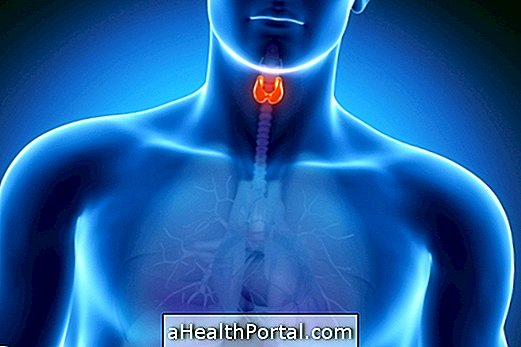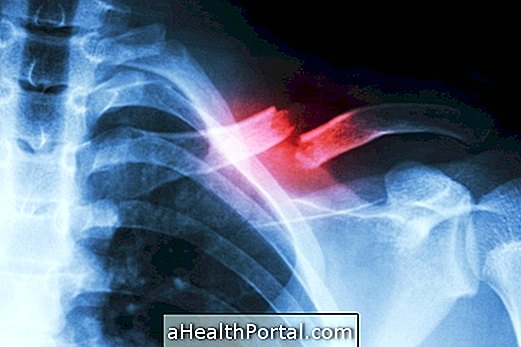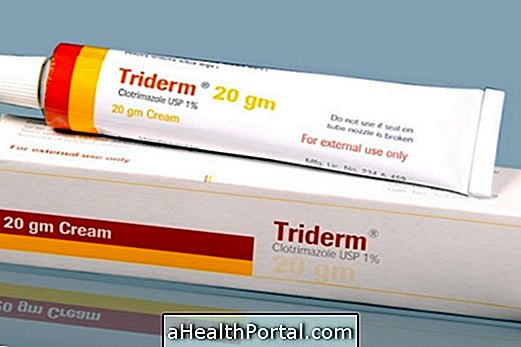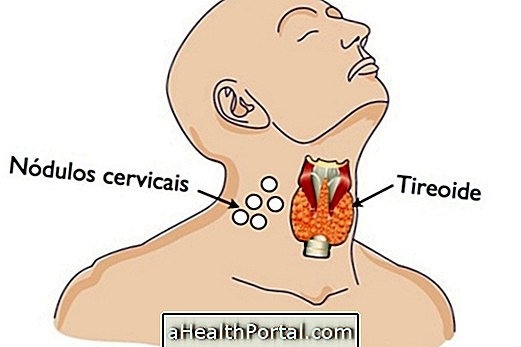Hormonal problems and hormonal imbalance are very common and can cause various symptoms like overeating, irritability, excessive tiredness or insomnia.
Although these types of problems are more common in women, due to normal life stages such as menopause, menstruation or pregnancy, they can also affect men, especially after 50 years due to andropause.

In addition, hormone levels may still vary due to sleep patterns, excessive stress or unbalanced diet, being important to be aware of some signs.
1. Difficulty getting to sleep
The difficulty in getting to sleep is more common in women due to the decreased concentration of the female hormone progesterone. One of the natural properties of this hormone is to help the body to relax, making it easier for the person to fall asleep at night.
Thus, when there is a hormonal imbalance that affects this hormone, the woman may have more difficulty sleeping and may even feel more agitated and anxious during the day.
What to do: It is recommended that the person seek guidance from the endocrinologist or gynecologist for a blood test to check progesterone levels in the blood and thus initiate appropriate treatment. Normally, when the progesterone concentration is low, it is recommended that hormone replacement be done, which can be done with progesterone-containing medicines in their natural form.
2. Excessive hunger
Hormones control many functions of the body, one of which is the feeling of hunger. So when some hormones, such as ghrelin, are higher than others, such as oxintomodulin and leptin, for example, you may feel more hungry even after you have had lunch or dinner.
What to do: It is important to go to the endocrinologist to check the levels of appetite regulating hormones and thus to strategize for the regulation of these hormone levels. Thus, it is recommended to consult a nutritionist, so that it is possible to follow a healthy diet and that helps to regulate the hormonal levels, besides the accomplishment of physical activities.
3. Poor digestion and other digestive problems
Although not a direct sign of hormonal changes, digestive problems, such as excessive gas and poor digestion, may indicate that you are eating more than normal or ingesting many industrial products. And this usually happens when there is an imbalance in the hormones of hunger or progesterone and testosterone, for example.
In addition, in case of hypothyroidism, it can also happen slower digestion and full stomach feeling for longer, as the lowering of the thyroid hormones slow down the functioning of the whole body.
What to do: In these cases, it is necessary to go to the endocrinologist, so that they are asked for tests that can identify the cause of bad digestion. When it is caused by a change in the production of thyroid hormones, it is recommended by the doctor to perform hormone replacement, which is done with the medicine Levothyroxine, which contains the hormone T4, which should be consumed as directed by the doctor.
It is also necessary to consult the nutritionist to check which foods are most indicated and that alleviate the symptoms of bad digestion and that can help to treat the cause of the hormonal alteration.

4. Excessive tiredness during the day
Thyroid hormones control the metabolism, so if there is a reduction in your production, the body starts to function more slowly, slowing the heart rate and even mental functioning.
Thus, it is possible to have less energy and feel more fatigue during the day, as well as difficulty thinking and concentrating.
What to do: When there is a change in the production of thyroid hormones, the endocrinologist indicates hormone replacement with the hormone T4 and regular thyroid exams. In addition, it is important to pay attention to eating, avoiding stress and practicing physical activities on a regular basis.
5. Anxiety, irritability or depression
This is one of the most obvious signs of abrupt hormonal changes, especially in menopause, when situations that used to be normal begin to cause symptoms of sadness, anxiety or excessive irritability.
What to do: To reduce anxiety, irritability, or symptoms of depression, it may be worthwhile to do therapy sessions so that you can talk about your everyday life and situations that may favor anxiety or irritability, for example. In addition, it is recommended to perform physical activities, as they promote the sense of well-being.
6. Excessive pimples or acne
Increased hormone testosterone is responsible for causing excess oiliness of the skin and therefore both men and women may have excessive pimples or persistent acne due to oiliness of the skin, especially when testosterone is much higher than other hormones body.
What to do: To eliminate excess thorns that arise due to increased testosterone concentration and, consequently, increased skin oiliness, it is recommended to wipe the skin at least once a week to decrease the oiliness of the skin and, thus preventing the appearance of pimples.
In addition, it is important to pay attention to food, because some foods favor the production of sebum by the sebaceous glands, leading to the appearance of the pimples. Check out how to get blackheads and pimples.










-o-que--e-para-que-serve.jpg)




-causas-e-como-tratar.jpg)




